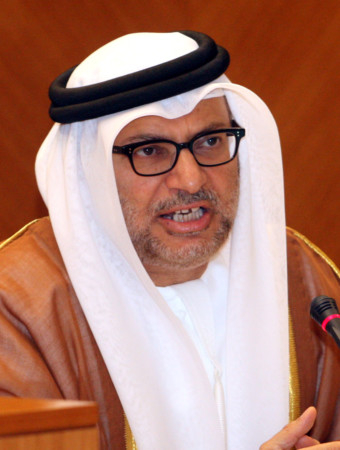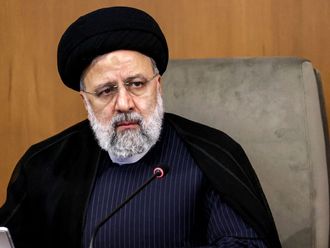
Manama: A senior UAE official has warned that relations between the Gulf Cooperation Council (GCC) countries and Iran would become more tense if the situation in Yemen was used to support Tehran’s regional expansionism.
“What is required is a balanced relationship between the Gulf Cooperation Council (GCC) countries, the Arabs and Iran that rejects sectarianism and respects sovereignty and non-interference. In such a case, the Iranian discourse will be acceptable and positive,” Dr Anwar Gargash, the Minister of State for Foreign Affairs, said.
“Using the situation in Yemen to support an external expansion within the context of the developments in Iraq and Syria will result in tense relations and sectarian mobilisation. Tehran, before any other side, should be held accountable for it,” he posted on his Twitter account.
The UAE official posted the remarks after Iranian President Hassan Rouhani harshly criticised Saudi Arabia during the Iranian army’s marching ceremony to mark the National Army Day on on Saturday.
In his speech, Rouhani warned that Saudi Arabia “will harvest the hatred it is sowing in Yemen.”
Gargash said that the attacks on Saudi Arabia would have no effect.
“The fierce Iranian attack against Saudi Arabia will not succeed in splitting the Gulf countries. The Storm of Resolve Operation is a joint Arab enterprise towards Iranian expansion and control-through-militias policy.”
In another tweet to his 121,159 followers on Twitter, he refuted the Iranian arguments as “weak.”
“Building the Iranian position on moral grounds is a weak argument in light of the targeting of civilians in Syria and the condoning of Syrian suffering. The morality argument cannot convince when it is used within the Yemen context [alone],” he said.
Writing for Bahraini daily Al Ayam, Columnist Saeed Al Hamad said he wanted to know the reasons Arabs do not trust the Iranian regime.
“Over the last 36 years, the regime of the religious leaders in Iran has failed to win over the trust of its neighbouring countries or the majority of their people,” he wrote on Sunday.
“The problem with Iran is that it is proficient in speeches and slogans, but it is not committed to applying a single word of what it says about good-neighbourly relations. Its actions invariably contrast with its words. Iran’s neighbours have exerted tremendous efforts to build relations and have never interfered in its domestic affairs. They have often chosen to ignore negative attitudes and attempted to start new chapters. However, the religious leaders quickly ended all attempts to promote good neighbourliness,”he said.










